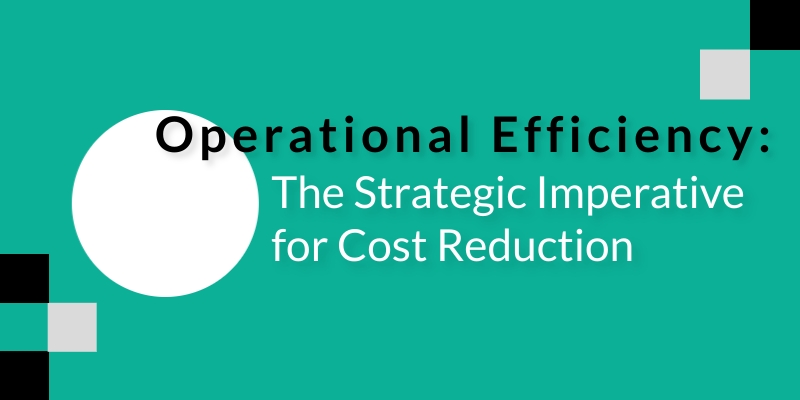Embracing Diversity: Building Inclusive Teams Through Exceptional Leadership
A truly great leader transcends the mere holding of a position of authority; they embody the capacity to inspire and motivate those around them. Such leaders wield the remarkable ability to unearth the hidden potential within each team member, fostering an atmosphere where every individual feels truly valued and driven to contribute towards a collective aim. The journey of leading a team, however, is fraught with challenges. It demands the knack for navigating a diverse array of personalities, each requiring a unique approach to unlock their best selves. Leaders must hone the skill of devising innovative solutions to the intricate issues that inevitably surface within the team or the broader organization.
Furthermore, a leader’s responsibilities extend beyond mere people management. They are the architects of the company’s strategy, tasked with crafting and communicating clear goals, ensuring that each team member’s efforts are harmonized with the overarching vision. The hallmark of a truly effective leader lies in their ability to juggle these myriad responsibilities while remaining steadfast to their core values and ethical principles. This often involves making difficult decisions for the greater good and cultivating a culture that champions both personal and professional growth among all employees.
Moreover, exceptional leaders are acutely aware of the evolving dynamics of the modern workplace and strive to create an inclusive environment that respects and nurtures diversity of thought and experience. They are lifelong learners, constantly seeking new knowledge and experiences to enrich their leadership style and broaden their perspective.
Ultimately, the essence of great leadership is not in the wielding of power, but in the empowerment of others. It is about inspiring and enabling the team to transcend their limitations and achieve excellence, laying the foundations for a legacy of success and innovation. In essence, an outstanding leader does not merely guide a team but galvanizes them towards achieving their utmost potential, crafting a future that is bright with possibilities.
Over the past few years, in my role as the leader of my business, I have dedicated considerable effort to developing and refining a leadership style that is characterized by a blend of visionary management techniques and a deep, empathetic understanding of my team members, as detailed in insights from [https://cpcchangeagent.com/post/what-s-your-corporate-cultural-fingerprint/]. This distinctive amalgamation has not only fostered an atmosphere of innovation and forward-thinking but has also cultivated a strong sense of empathy towards the diverse needs and challenges faced by my team. By leveraging this approach, I have been successful in establishing an effective, cohesive, and highly productive remote working environment, which has significantly contributed to the well-being and job satisfaction of my employees, thereby enhancing overall team performance and morale. This strategic blend of visionary and empathetic leadership has therefore been a key driver in fostering a culture of inclusivity, collaboration, and agility within my organization.
As a visionary leader, I strive to paint a compelling and inspiring vision of the future for my team. I believe that having a clear direction and purpose helps to motivate and engage employees, even when they are not physically present in the same location. By setting ambitious goals and communicating them with enthusiasm, I encourage my team to think outside the box and pursue innovative solutions. This visionary approach not only fosters a sense of shared purpose and passion but also instills a sense of ownership and personal investment in their work.
However, I also recognize the importance of empathy in leadership. I understand that each of my employees is a unique individual with their own strengths, weaknesses, concerns, and aspirations. By taking the time to listen actively to their needs, concerns, and ideas, I create an environment where they feel valued, understood, and supported. This empathetic understanding allows me to tailor my communication and management strategies to best meet the individual needs of my team members, ensuring that they feel heard and motivated to excel in their roles.
Combining my visionary approach with empathy has proven to be a winning formula for success in our remote working conditions. Despite the physical distance between us, my team members feel connected and united, working towards a common goal. This leadership style has not only enabled us to overcome challenges but has also fostered a culture of collaboration, creativity, and continuous improvement. I firmly believe that by leading with vision and empathy, I have not only created an effective team but also paved the way for sustained growth and success for my business.
What Do We Mean By Visionary Management?
Visionary management is a crucial aspect of leadership that involves setting ambitious goals for your team while still being realistic about what can be accomplished within a given timeframe. It requires the ability to look beyond immediate challenges and distractions and focus on the future needs of the company. This involves developing strategies and plans that will enable the organization to achieve its long-term objectives. As a leader, it is essential to have a clear vision and be able to communicate it effectively to the team. This ensures that everyone understands the direction the company is heading in and can work together towards its realization. Additionally, a visionary leader must empower their team members by instilling trust and confidence in them. By doing so, employees feel supported and motivated to take ownership of their tasks and contribute to the overall success of the organization. Effective visionary management involves strong communication skills, strategic thinking, and the ability to inspire and motivate others toward achieving common goals.
Empathetic Management Practices
Being a visionary is essential for good leadership, but it is equally important for leaders to possess empathy towards their employees. Empathy involves understanding the unique qualities and motivations of each individual, as well as recognizing their strengths and weaknesses. This understanding allows leaders to assign tasks that align with their employees’ abilities and provide appropriate support when needed. Effective leaders also take the time to acknowledge and celebrate the achievements of their team members. They understand that everyone, regardless of their role or any mistakes they may make, should feel valued and supported. This support is crucial in helping individuals navigate challenges and overcome obstacles. A successful leader recognizes the importance of creating a positive and inclusive work environment where everyone feels supported, valued, and motivated to achieve shared goals.
Leadership success begins with having a clear vision for where you want your organization to go. This vision serves as a compass, providing guidance and direction for your team. It sets the course for the organization’s goals and objectives, ensuring that everyone is working towards a common purpose. Furthermore, a clear vision helps to create a sense of unity and focus, allowing team members to align their efforts and make informed decisions.
However, simply having a vision is not enough. To truly succeed as a leader, empathy for every individual on your team is crucial. Each member of your team brings unique strengths, perspectives, and experiences to the table. It is important to recognize and appreciate these differences by fostering an inclusive and supportive environment. By doing so, you create a sense of belonging and safety where everyone feels valued and understood.
Leaders who possess empathy can understand their team members’ needs, motivations, and challenges. They actively listen to their concerns and demonstrate genuine care and support. By empathizing with others, leaders can build stronger relationships, enhance communication, and foster a positive work culture. This, in turn, leads to increased trust, collaboration, and productivity within the organization.
Moreover, empathy allows leaders to take into consideration the impact of their decisions on team members. They understand that each individual may have different circumstances and aspirations, and they strive to make inclusive choices that benefit the majority. Empathetic leaders promote fairness, respect, and equal opportunities for growth and development. By supporting the personal and professional aspirations of their team, they drive individual and organizational success.
In conclusion, having a clear vision and exercising empathy are essential components of effective leadership. A vision provides direction and purpose, while empathy creates a supportive and inclusive environment where every team member feels valued. Leadership success is achieved through understanding, appreciating, and supporting the diverse individuals that make up the team. By combining a compelling vision with empathetic leadership, you can inspire others to achieve their full potential while driving the organization toward success.
By cultivating empathy, leaders create an environment where individuals feel motivated and inspired to do their best work. When employees feel a sense of belonging and purpose, they are more likely to go above and beyond, working together towards achieving the shared vision. As a leader, it is essential to recognize and appreciate the unique skills, talents, and perspectives each team member brings.
Moreover, effective leadership involves ensuring that everyone feels respected, regardless of their role or assigned tasks. Every person plays a vital role in the success of the organization, and acknowledging their contributions fosters a culture of inclusivity and collaboration. This, in turn, not only leads to professional success but also personal growth for individuals within the organization.
As a leader, I am committed to embodying these principles by putting my employees first. By prioritizing their well-being, development, and satisfaction, I create an environment that encourages growth and fosters a positive work culture. It is my sincere hope that other business leaders will adopt the same approach, recognizing the significance of empathy and inclusivity in achieving organizational success. Together, we can create workplaces that empower individuals to thrive and contribute their best. Connect with one of our consultants today to see how we can help you lead more effectively.







